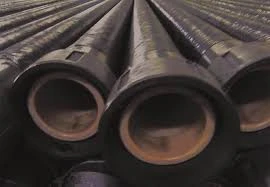frp drum
Understanding FRP Drums A Modern Solution for Storage and Transportation
In the evolving landscape of industrial materials, Fiber Reinforced Plastics (FRP) are making significant strides, particularly in the realm of packaging and storage solutions. Among these innovations are FRP drums, which are quickly gaining popularity for their durability, chemical resistance, and lightweight characteristics.
FRP drums are manufactured by combining plastic with various reinforcing fibers such as glass or carbon. This fusion results in a composite material that boasts superior strength-to-weight ratios compared to traditional metal or plastic drums. The unique properties of FRP make it an ideal choice for industries that require reliable and protective storage solutions, especially for hazardous materials.
.
In terms of weight, FRP drums are much lighter than their metal counterparts. This reduction in weight translates to lower transportation costs and easier handling for personnel. In environments where barrels are frequently moved or stacked, such as warehouses and manufacturing plants, the lightweight nature of FRP drums can lead to significant operational efficiencies.
frp drum

Moreover, FRP drums are designed with sustainability in mind. The materials used in their production can often be recycled, contributing to a more environmentally friendly approach to packaging. Additionally, the longer lifespan of FRP compared to traditional drums means fewer replacements and a reduced overall environmental footprint.
When it comes to safety, FRP drums exhibit a high level of resilience against impact and environmental stresses. Their robust construction minimizes the risk of leaks or spills, which is crucial when dealing with toxic or hazardous substances. Furthermore, many FRP drums come equipped with secure sealing mechanisms and are engineered to meet various regulatory standards, providing an added layer of safety for users.
Despite their many benefits, it is essential to consider the cost implications of FRP drums. While they may be more expensive upfront than traditional metal or plastic options, their longevity and performance can lead to savings in the long run. Companies looking to invest in storage solutions must weigh these factors carefully to determine the best fit for their operational needs.
In conclusion, FRP drums represent a significant advancement in the field of storage and transportation solutions. Their combination of durability, chemical resistance, and lightweight properties makes them ideal for various industries. As more businesses look for sustainable and effective ways to package and store their products, FRP drums are poised to become a vital component in modern industrial applications.
Latest news
-
Oblate Tanks: Space-Saving, Durable Liquid Storage SolutionsNewsAug.27,2025
-
High-Performance Piping System Solutions for Industry & Commercial UseNewsAug.26,2025
-
Precision Fittings: Durable & Reliable Industrial & Plumbing SolutionsNewsAug.25,2025
-
Practical Steps: Unlock Success with Our Proven GuidesNewsAug.24,2025
-
Transport Tanks: Safe, Durable & Efficient Liquid HaulingNewsAug.23,2025
-
High-Quality Piping Systems for Efficient Flow & DurabilityNewsAug.22,2025











